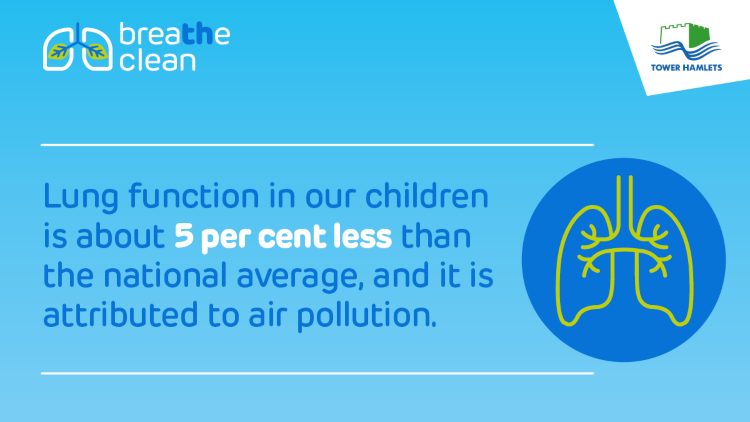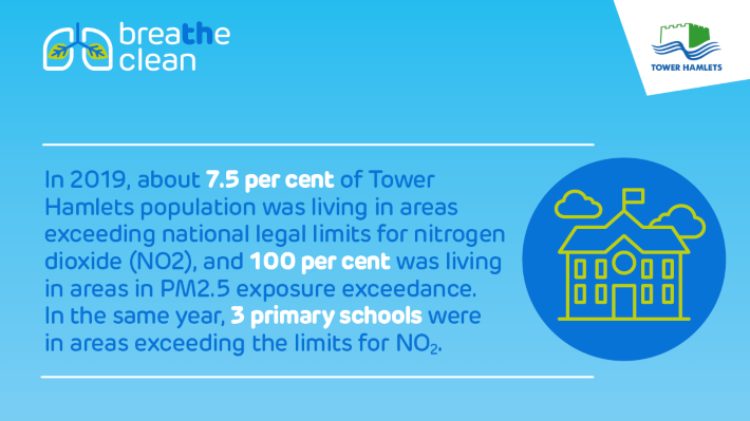Air pollution and idling

Air pollution is a major environmental risk to health. Road transport is the main source of air pollution, (exhaust emissions, as well as particles from tyre, brake and road surface wear).
In the UK, traffic is on average responsible for around 80 per cent of NO2 concentrations at roadside locations, with diesel vehicles the largest source in the most affected areas.
We want to take action to improve air quality in Tower Hamlets for our residents and visitors by stopping cars idling.
Eliminating idling is an easy and achievable way to instantly reduce harmful emissions and improve air quality. Air quality affects everyone from the young to the elderly, so we all have a part to play.

Pollution in Tower Hamlets comes from a variety of sources, including from outside the borough.
Nitrogen Dioxide and particulate matter are the two main pollutants originating in Tower Hamlets.
The main sources of Nitrogen Dioxide are transport and domestic emissions from boilers. Traffic emissions and particles from traffic sources such as brake and tyre wear are the main sources of particulate matter pollution.
Reporting an issue
To report a problem with idling, please email Environmental.Protection@towerhamlets.gov.uk or call 020 7364 5000.
Please provide:
- a description of the problem
- the address of the problem
- your name, address and contact details.
Engine idling
Engine idling is the unnecessary running of a vehicle engine and is a significant source of local air pollution as well as noise. To counter this, the council is carrying out an extensive awareness raising campaign. We have also adopted powers to issue fixed penalty notices for idling, under the Road Traffic Regulations 2002.
If a vehicle driver is found to be idling unnecessarily and refused upon request to turn off their engine, they may be given a £20 fine.
There are circumstances where drivers are allowed to leave their vehicle’s engine running when stationary:
- Where a vehicle is stationary owing to the necessities of traffic e.g. when vehicles are queuing at traffic lights;
- Where an engine is being run so that a defect can be traced and rectified
- Where machinery on a vehicle requires the engine to be running e.g. where the engine powers refrigeration equipment or the compaction equipment in a refuse vehicle;
- Where a vehicle is propelled by gas produced by the functioning of plant carried on the vehicle.
We have run a number of awareness raising events at local schools where parents often create unnecessary toxic pollution by idling at pick up times. We have also placed banners and signs at strategic locations throughout the borough.